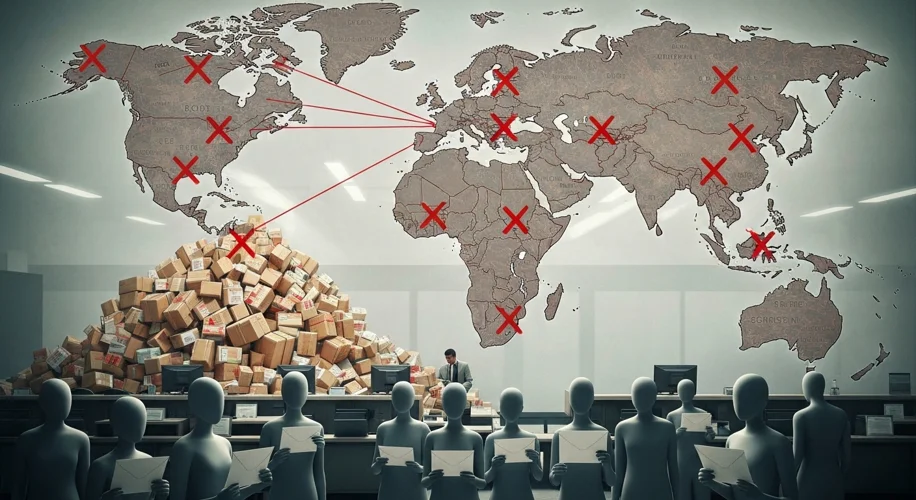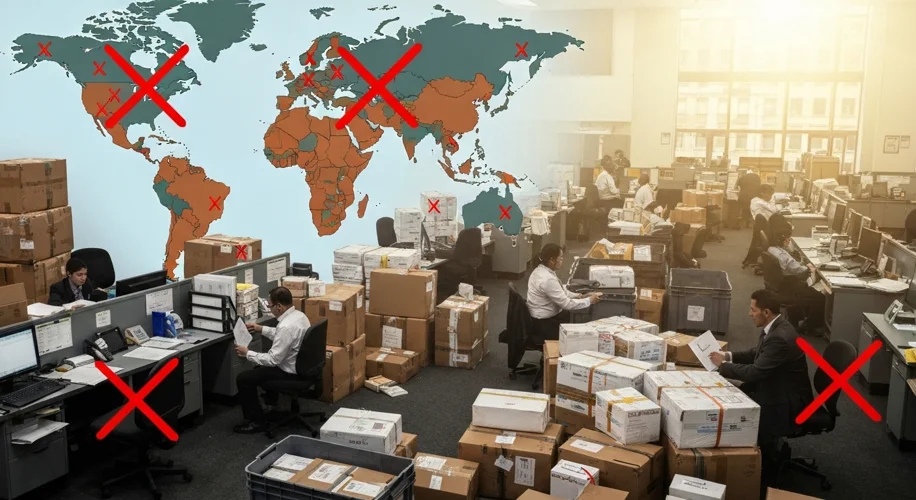The delicate threads that weave our global community together are fraying. As of August 27, 2025, a startling report from the United Nations reveals that twenty-five nations have suspended their postal services to the United States. This unprecedented move, stemming from contentious tariff disputes, threatens to sever not just the exchange of letters and parcels, but a fundamental aspect of international connection.
Imagine a world where a letter from a loved one across the ocean, a crucial business document, or even a small, heartfelt gift can no longer reach its destination. This is the reality now faced by countless individuals and businesses due to a disagreement over tariffs – financial duties imposed on imported goods. While the specifics of these disputes remain complex and multifaceted, their impact is starkly clear: a widespread disruption of communication and commerce.
The historical roots of postal services run deep, dating back centuries to rudimentary systems designed to carry messages for royalty and merchants. Over time, these services evolved into the sophisticated global networks we often take for granted today, facilitated by international agreements and organizations like the Universal Postal Union (UPU). The UPU, established in 1874, plays a crucial role in coordinating postal policies and ensuring the free circulation of mail among its member states. This current situation represents a significant challenge to the very principles of global postal cooperation that the UPU strives to uphold.
The United States, a major player in global trade and communication, finds itself at the center of this diplomatic and logistical storm. While the specific grievances of the twenty-five nations have not been fully detailed in the initial UN report, it is understood that these tariff impositions have created an untenable situation for their own postal operators. These operators, often state-run entities, rely on a predictable flow of international mail and associated fees. When tariffs disrupt this flow or make it economically unviable, suspensions become a drastic, yet, from their perspective, necessary measure.
Consider the impact on everyday citizens. For families with members living abroad, the inability to send or receive mail can mean missing vital updates, birthdays, or emergencies. For small businesses that rely on international shipping, the suspension can cripple their operations, leading to lost revenue and potential layoffs. The cultural exchange that happens through letters, postcards, and small packages – the very fabric of people-to-people diplomacy – is also severely hampered.

This current crisis is not an isolated incident but rather a symptom of broader global trade tensions. Tariffs, while sometimes used as a tool for economic protection or to address trade imbalances, can easily escalate into retaliatory measures. When one nation imposes tariffs, others may feel compelled to respond in kind, leading to a domino effect that impacts multiple sectors, including the vital postal infrastructure.
The long-term consequences of such a widespread postal suspension are significant. It could lead to a decline in trust in international cooperation, encourage the development of parallel or private postal networks that bypass established channels, and potentially slow down the very global economic integration that many nations seek. Furthermore, it raises questions about the resilience of our interconnected systems in the face of political and economic disagreements.
As we navigate this complex situation, it is crucial to remember the foundational role postal services play in connecting us. The ability to send and receive mail is more than a convenience; it is a fundamental right and a cornerstone of global communication. The hope is that diplomatic channels will swiftly reopen, addressing the tariff disputes and restoring the essential flow of mail, ensuring that these vital threads of connection are not permanently severed.
This event serves as a stark reminder that even in our digitally saturated age, the humble postal service remains a critical artery of global interaction. Its disruption underscores the fragility of international agreements and the far-reaching consequences of trade disputes.

